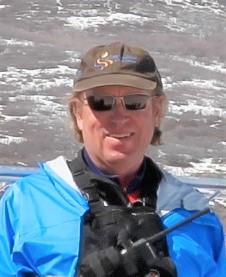Howard Peterson - USSA leader, Olympic visionary, athlete advocate
Howard Peterson, an influential leader of the U.S. Ski Association, a pivotal voice in bringing the Winter Olympic Games to Utah and an indefatigable advocate for the athletes throughout his storied career, passed away May 11 in Heber City, Utah, after a long illness. He was 69.
As secretary general of USSA in the late 1980s, Peterson pushed the U.S. Olympic Committee to select a candidate city based on its willingness to develop legacy facilities and training venues that could be used long after the Games. It was a tough sell. Anchorage, Alaska, was viewed as the prohibitive favorite candidate.
But by the margin of two votes, on the second ballot, Howard’s powers of persuasion paid off in 1989, and Salt Lake City was selected by the USOC as its bid city, and eventually was awarded the 2002 Games, with the resulting venues continuing to serve athletes and the public today.
A Maine native, Peterson was one of the founders of the National Ski Touring Association (now Cross Country Ski Areas Association) before taking a lead role with USSA that would indelibly change both the sport and the sport’s organizational structure.
In 1988, Peterson orchestrated an initiative to unite the U.S. Ski Team and the U.S. Ski Association into one entity, and relocated the new group to Park City from Colorado Springs. He also expanded USSA to include a national adaptive team, and had the vision to successfully lobby to add freestyle skiing and snowboarding into the Olympic and Paralympic programs.
One of his defining beliefs was his relentless support for the competitors. Howard pioneered compensating athletes—allowing cash prizes and sponsorship money—by negotiating a breakthrough deal with the FIS in 1990. He also didn’t avoid tackling the tough ethics issues of the day, taking on both the U.S. Olympic Committee and FIS. In 1991, his efforts helped drive leadership changes at the USOC. The next year, his efforts caused similar reforms within the FIS after a bribery scandal went public. He also served for many years on the FIS Advertising Matters Committee, which he saw as another venue to further benefit the athletes.
He retired from the USSA in 1994. Five years later Howard led the effort to form the Solider Hollow Legacy Foundation to preserve the site of the 2002 Olympic Nordic venue. Solider Hollow became, arguably, the most enduring legacy of the 2002 Games—just as he had envisioned. He retired from the foundation in 2014.
Howard’s wife, Susan, passed in 2016. The two met ice climbing on New Hampshire’s Mount Washington in 1976. They were married in 1989, enjoying a life of travel and adventure, visiting 80 countries together. Howard also was an accomplished climber, with many first ascents.
Perhaps his most meaningful accomplishment was helping to redefine how a sport treats its competitors. “As an athlete on the U.S. Ski Team, I remember Howard toting around his huge leather handbag full of papers,” U.S. Ski & Snowboard President and CEO Tiger Shaw told Tom Kelly in a story for USSA. “He was always there for us,” Shaw said. “He cared deeply for the teams.”
